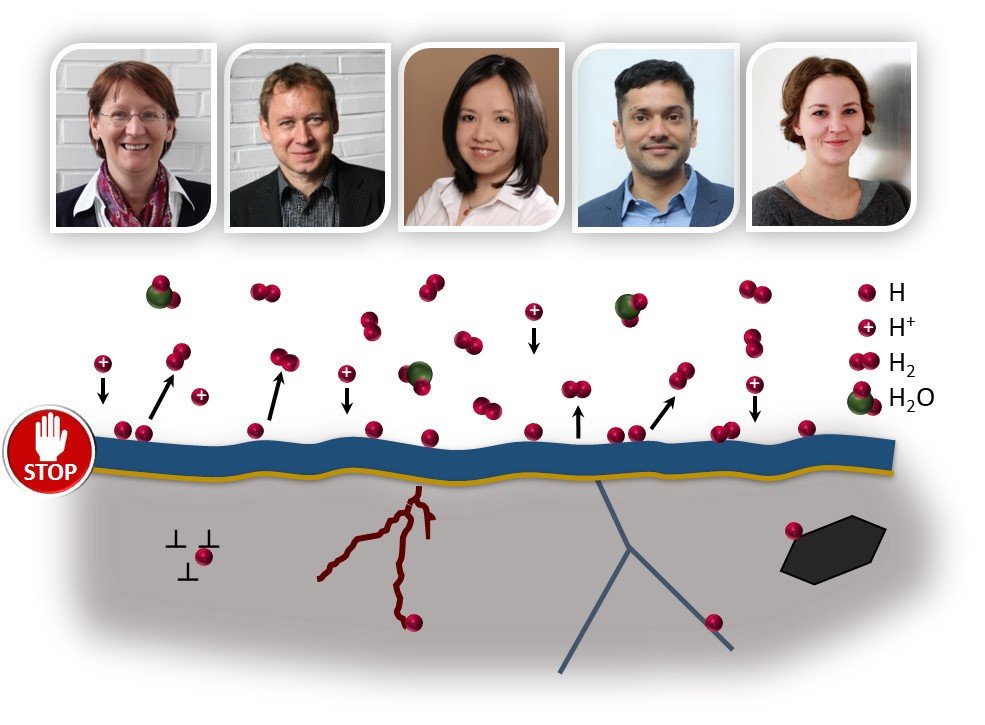Full speed ahead for hydrogen research
Novel coatings for low-cost and high-strength steels used for hydrogen technology
Scientists from the Centre for Materials and Coastal Research of the Helmholtz Zentrum Geesthacht, the Leibniz Institute for Plasma Science and Technology and the Max-Plank-Institut für Eisenforschung launch a new large scale research project titled “H2BS” to develop coatings that act as barrier layers for hydrogen and thus enable the use of low-cost and high-strength steels in applications storing and using hydrogen.

Being able to gain hydrogen from water, wind and solar energy and to store it in the existing gas network makes it the ideal candidate for a sustainable energy economy. Due to its low energy density, hydrogen has to be stored and transported either as in gaseous form under high pressure or as a fluid. But, how to store and transport hydrogen safely and efficiently? Currently used pipelines and tanks are made out of high alloy steels, or polymer and carbon based compounds, which are either too expensive or do not store hydrogen efficiently. Replacing them with low-cost steels is at present not possible, as these steels have low efficiency for storage and are affected by hydrogen embrittlement. The idea of the interdisciplinary research team is to develop within two years hydrogen-resistant coatings employing plasma technology, which make the use of low-cost steels possible. The coating would impede hydrogen transport to the steel therefore preventing embrittlement and increasing the efficiency of the system. The MPIE scientists led by Prof. Christina Scheu, head of the independent research group “Nanoanalytics and Interfaces”, and Prof. Gerhard Dehm, director of the department “Structure and Nano-/Micromechanics of Materials”, will focus on advanced microstructural analysis with transmission and scanning electron microscopy and atom probe tomography, to analyse the coatings and their coupling with the steel substrate down to the atomic scale. Moreover, the MPIE team will test the mechanical stability of the steels and the coatings, not only before and after their exposure to hydrogen but also during hydrogen loading, using new methods developed by the research groups, to understand how the coatings protect the steel’s surface from hydrogen penetration.
The project aims to define coating methods for different steel sorts. In a follow-up project, the coatings will be optimized for specific components used in the hydrogen economy, such as in stationary storage tanks and in all aspects concerning maritime mobility.
The project is supported by experts from the automobile and engineering industry, and the Federal Ministry of Economics and Energy.
Author: Yasmin Ahmed Salem












